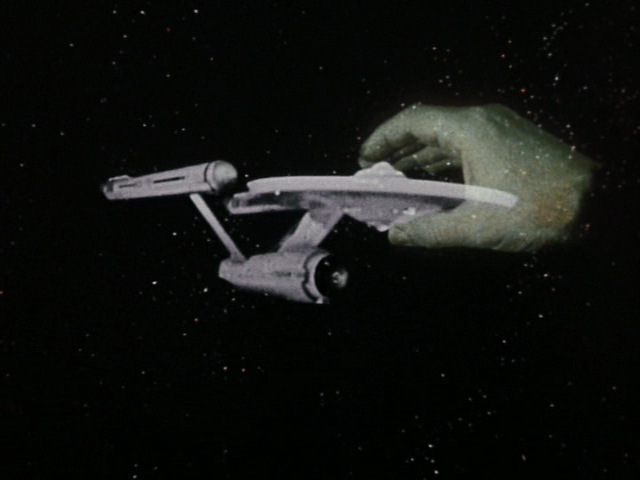_random_
Jewel Runner
Why in all holy hell would you accept TAS as canon before ENT?
It was re-canonized years ago, when some of the events of "Yesteryear" were incorporated into the live ST series. There are some ST pro authors who even consider the Kzinti to be canon (from the animated episode "The Slaver Weapon") - and if they do, that must mean that the publishers/Roddenberry's estate consider it canon.A series which has long been established as not being canon.

Only the live action TV and movies have been considered canon. There are elements from books and TAS that have become canon by being incorporated into one of the above, but that doesn't make the rest of it any more valid.It was re-canonized years ago, when some of the events of "Yesteryear" were incorporated into the live ST series. There are some ST pro authors who even consider the Kzinti to be canon (from the animated episode "The Slaver Weapon") - and if they do, that must mean that the publishers/Roddenberry's estate consider it canon.
It seems more like this is the rule that applies to the official live action series and movies already, since they are not exactly known for their consistency either.At best, it is be treated like Star Wars does with the expanded universe, it can be considered canon unless contradicted by any of the main works in which case it immediately becomes non-canon.
Now if you're talking about inconsistencies with the laws of physics instead

This is for YOUR benefit, El Mac! If we can be in negative numbers now, you will be able to tell your great-great-great-great-great-great-great-repeat 100 more times-grandchildren that, yes, you were in fact alive before year zero (which the new calender will have.) You -will- still be alive then, I assume...

Touché.That, if anything, suggests greater consistency with the whole of the Star Trek franchise.

 (and I agree with Random that ENT is not that bad, better than VOY in any case).
(and I agree with Random that ENT is not that bad, better than VOY in any case).As far as I am aware, there is very little that is currently disowned as canon: Star Trek V (the horrible mess William Shatner directed), and the Voyager episode "Threshold" (where achieving Warp 10 means you evolve super-fast into a lizard). There are one or two others, but I don't remember which ones.

As I understand it, the Greek gods of the episodes were merely very powerful aliens, not supernatural entities. And by Clarke's Law, I suppose we can assume that they've simply circumvented everything we know about physics with technology somehow. Perhaps more egregious is the sound in space. I understand its utility as a dramatic convention, but it's just odd when characters acknowledge it, like in The Voyage Home and ENT: "Breaking the Ice."That bit was explicitly divine power. God does not play dice with the universe, remember?
Touché.
But if I'm honest, I wouldn't be particularly troubled if TOS was eliminated from canon as well.
Star Wars canonicity is more complex than that. It even has a central arbitration group.At best, it is be treated like Star Wars does with the expanded universe, it can be considered canon unless contradicted by any of the main works in which case it immediately becomes non-canon.
I was introduced to Star Trek with the later seasons of TNG, so I simply don't care that much for TOS. But what I meant was that if you really look at what TOS established about the universe that still holds true in the later series, there really isn't that much left than can exclusively be found in TOS. Plus there's a lot of silliness in there which I really wouldn't want to be canon - the already mentioned Apollo episode is part of it, or every plot that involved a planet where for convoluted reasons everything was just like a certain period of Earth's history, such as Modern Rome Planet and Chicago Mobster Planet.I don't see the point in calling it a Star Trek canon without TOS. What parts do you like?
Eh, I'm not sure that there isn't literature that spells out the Star Trek canon.
Shoot, I used to have Star Trek 'technical' manuals, (but then I got a girlfriend - not insulting my fellow treckies, I just wouldn't be caught dead with it at the time) so I wouldn't be surprised if there were works that sort out the canon from the non-canon.
There isn't any literature because the official canon has been very simple, live action TV series and movies. Reference materials are accepted in a limited fashion mainly in the form of details added to otherwise canon material (such as specifications of starships). In comparison a Star Wars equivalent would be to say the entire Expanded Universe is non-canon.
That said, fans commonly accept content (such as TAS) to flesh out the universe and different groups will have different ideas as to just what is accepted there is no standardization.
Yes.So all of the Star Trek novels are non-cannon?
